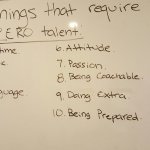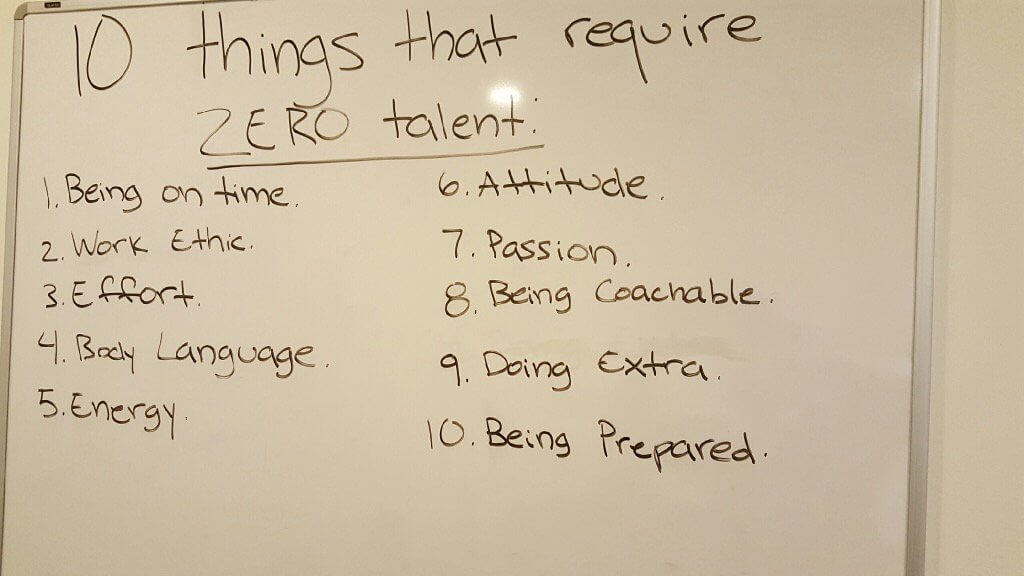 What inspires your corporate identity? Does your sales group have a shared culture? Is your team clear on your core values? If not, the fantastic memoir, “Sum It Up: 1,098 Victories, A Couple of Irrelevant Losses, and a Life in Perspective,” by Pat Head Summitt with Sally Jenkins, might be a great read for you and your team.
What inspires your corporate identity? Does your sales group have a shared culture? Is your team clear on your core values? If not, the fantastic memoir, “Sum It Up: 1,098 Victories, A Couple of Irrelevant Losses, and a Life in Perspective,” by Pat Head Summitt with Sally Jenkins, might be a great read for you and your team.
As the book title indicates, Summitt built a dynasty in a sport where teamwork is paramount. Eight national titles. First coach to 1,000 wins. One hundred percent of her players who completed their eligibility earned a diploma as well. What she accomplished at the University of Tennessee is the kind of consistent achievements under pressure that all teams—in sports and business—crave. She did all this across generations, including with today’s millennials who challenge traditional expectations of discipline and accountability. Summitt knew how to efficiently refocus energy to avoid the multiple distractions that suck momentum from teams.
These five gems from “Sum it Up” should resonate for anyone in corporate leadership and team building:
Don’t pull the puppet strings. “I can’t score for you, or get a rebound for you, I can only give you the information to be successful,” she told her team. Based on situational learning, she taught players to make good independent judgments. Empowering them required her to sacrifice, to give up being in control of everything and everybody.
Encourage genuine feedback. Summitt observed that when her players didn’t hear feedback, they assumed the silence meant they were underperforming, worthless or unlikable. She like many leaders struggled finding the sweet spot between too much praise and too much effectiveness. Summitt devised a feedback system in which a player had to say “two points” when they heard her praise, and “rebound” when they heard her criticism. “It was surprising how much better it made everybody feel,” Summitt writes.
Leverage failure for growth. Summitt did not spare feelings when it came to diagnosing weak spots in her team. Failure opened the door to honesty in the presence of the entire squad. “Great teams explain their failure; they don’t excuse it,” she writes. “When you explain a loss aloud, it’s not longer a tormenting mystery.” Confronting problems in front of the group, Summitt-style, reduced misunderstandings and creates trust.
Commit to the tedium. That’s the description Summitt uses for the willingness to persevere through problems without quitting or demoralization. Through losing five NCAA finals in seven years, she discovered her “capacity for devoting sustained, focused attention to something other than myself. In time I would go from feeling like we would never win, to feeling like you couldn’t ever count us out again.”
Build trust through fairness. To mold a group of players or persons with varied levels of emotional maturity, Summitt borrowed a philosophy from UCLA coaching legend John Wooden: “I don’t treat them all the same, but I treat them all fairly.” By accepting that individual development happened at different speeds, she fostered a greater sense of security. From that base, she could push them to levels of discomfort required of champions. The single most important principle of teaching for Summitt: “They don’t care how much you know unless they know how much you care.”
The Molly Fletcher Company inspires leaders, teams and organizations to kick-start growth. A keynote speaker and author, Molly draws on her decades of experiences working as a sports agent. Her company offers training and coaching programs to help leaders unleash their potential, including: Game Changer Negotiation Training, which teaches business people a framework for successful negotiating; The Energized Leader training, which teaches people how to manage their energy to achieve focus and freedom; and a monthly coaching program, Game Changer Leadership Huddles, to help members recharge their purpose and mindset. Sign up here to receive our weekly newsletter and subscribe to the Game Changers with Molly Fletcher podcast on iTunes.
















